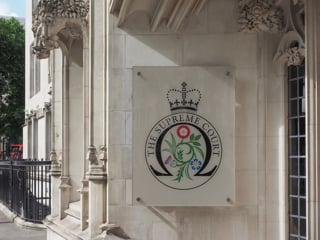The Financial Conduct Authority has issued a £28 million fine to Lloyds Banking Group for incentives schemes which drove staff to hit targets rather than consider customers fairly.
Lloyds TSB Bank, Halifax and Bank of Scotland, all part of the group, had "serious failings" in their controls over sales incentive schemes, said the FCA.
This is the largest ever fine imposed by the FCA, or its predecessor the Financial Services Authority (FSA), for retail conduct failings.
The FCA said the incentive schemes led to a serious risk that sales staff were put under pressure to hit targets to get a bonus or avoid being demoted, rather than focus on what consumers may need or want.
In one instance an adviser sold protection products to himself, his wife and a colleague to prevent himself from being demoted.
Tracey McDermott, the FCA’s director of enforcement and financial crime, said: “Financial incentive schemes are an important indicator of what management values and a key influence on the culture of the organisation, so they must be designed with the customer at the heart. The review of incentive schemes that we published last year makes it quite clear that this is something to which we expect all firms to adhere.
“Customers have a right to expect better from our leading financial institutions and we expect firms to put customers first – but firms will never be able to do this if they incentivise their staff to do the opposite."
Because there have been numerous warnings to the industry about the importance of managing incentives schemes, and because Lloyds TSB had been fined in 2003 for unsuitable sales of bonds, the FCA increased the fine by 10%.
It said Lloyds TSB and Bank of Scotland have made substantial changes, and the reviews of sales and the redress now being made should right many of these wrongs.
The FCA found that both firms had higher risk features in their advisers’ financial incentive schemes which were not properly controlled. This created a significant risk that advisers would maintain or increase their salaries, and earn bonuses, by selling products to customers that they did not need or want.
The FCA said it expects all financial incentive schemes to be designed carefully with good customer outcomes in mind, and the risks they pose must be identified and managed properly.
The FCA’s investigation focused on advised sales of investment products (such as share ISAs) and protection products (such as critical illness or income protection) between 1 January 2010 and 31 March 2012.





















Login to comment
Comments
No comments have been made yet.